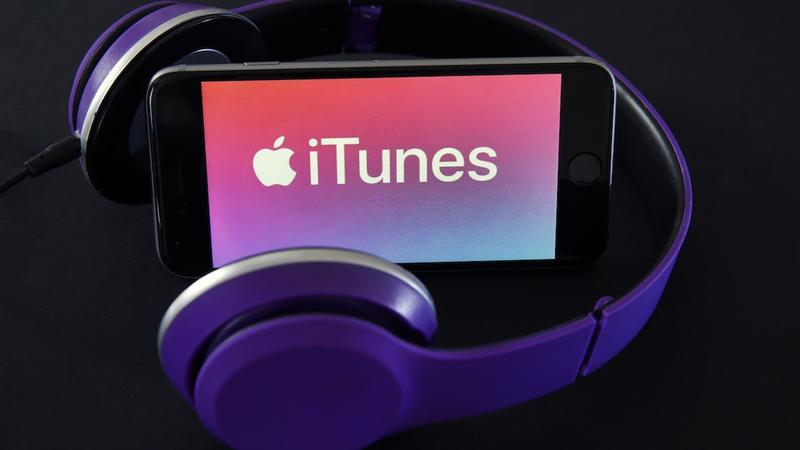Uploading Downloaded Mp3 From Itunes to Icloud

Apple released iTunes version 12.10.5 on March 24, 2020, with updates that resolved several performance and security problems. For example, this release addressed multiple bug with libxml2 (an XML C parser), including buffer overflows, arbitrary lawmaking executions, logic bug and memory corruption.
Version 12.10.5 likewise resolved several problems with the browser engine known equally WebKit, including memory abuse, defoliation problems, logic issues and malicious lawmaking executions. All of these updates are bachelor for iTunes for the Windows operating system version 7 and afterwards. In June 2019, Apple announced that macOS Catalina no longer included iTunes, but support will continue for older versions of the macOS and the Windows OS.
How to Update iTunes on an Older macOS
Updates to iTunes on older versions of the macOS oft coordinate with updates released for the operating system itself. Installing available operating system updates when they become bachelor ensures that all the apps on your computer remain stable, perform efficiently and remain secure.

To check separately for updates for iTunes on macOS Mojave version and later, go to System Preferences on the Apple tree carte du jour and click on "Software Updates." If updates are bachelor, you lot can either click on "Update Now" to update all apps or "More Info" to select the updates that you want to install. You will need to update apps that were downloaded separately from the App Store via the App Shop app.
For operating systems older than Mojave, open the App Store so click on "Updates" on the App Store toolbar. The next folio volition show yous available updates for the apps. Click on "Update" for any or all of the apps. If the folio doesn't show any apps, it means that all the apps on your reckoner are already up-to-date.
How to Update iTunes on a Windows Os
Windows Os users who downloaded iTunes from the Microsoft Store usually don't have to regularly cheque for updates. In nearly cases, the Microsoft Store updates the iTunes app automatically with each new release. However, you tin can nonetheless check for yourself to see if any updates are available by running the Downloads and Updates option on the Microsoft Store app.

PC users who downloaded their version of iTunes from Apple tree'south Website can outset the update process for the app by launching it. Navigate to the Bill of fare bar at the pinnacle of the iTunes window. Select "Aid" and then "Check for Updates." Available updates should appear on the side by side page, and you will receive a prompt to install them. If nothing appears, it ways that the app is up-to-appointment.
iTunes: The Last Major Modify
Apple launched iTunes in January 2001, calling it a "jukebox software." Its chief focus at the time was to provide admission to digital music with features that fabricated it easier for users to organize, collect and shop digital music files. By 2005, the app's features expanded to back up video files, e-books and podcasts, and it managed all your app purchases from the App Store. Mobile apps that were downloaded to devices prior to the release of iOS 5 required iTunes for their updates.

Apple introduced the last major overhaul to iTunes in September 2017. Version 12.7 saw the company doing away with the App Shop feature that used to come packaged with iTunes. With the removal of the built-in App Store, the iTunes revamp shifted the app's focus back to music, movies, Tv set shows, podcasts and audiobooks.
The 2017 iTunes version also came with features that supported the syncing of iOS xi devices. For Apple tree Music, version 12.seven introduced user music profiles that immune friends to follow each other to view their favorite music files and playlists. Then iTunes U became part of the Apple tree Podcast family.
What Replaced iTunes?
From its early ancestry as a "jukebox software," iTunes evolved into a multifunction app that served as an invaluable component on iOS and Mac devices. However, many users and tech experts complained most the unwarranted "bloat" that accumulated over the years, particularly when it came to iTunes' features. Many insisted the app had strayed too far from its original purpose.

The growing trend of streaming music and videos over the internet has rendered some of the functions of iTunes outdated. As iTunes continued to dip in popularity, Apple decided to suspension the once-mighty app's functions down into smaller apps. Since the June 2019 declaration that iTunes would non be included with Catalina, the functions of the app have been replaced with private apps for Music, Podcasts, Tv set and Finder.
Source: https://www.questionsanswered.net/tech/new-on-latest-version-itunes?utm_content=params%3Ao%3D740012%26ad%3DdirN%26qo%3DserpIndex